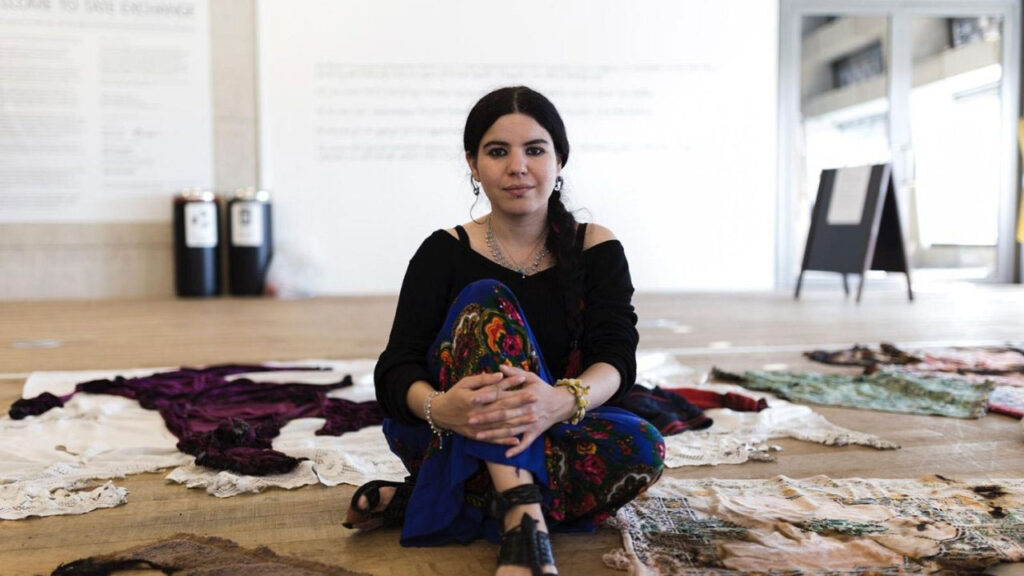Turkey’s Supreme Court of Appeals overturned a regional appeals court’s 2017 decision on Zehra Doğan, a Kurdish painter and reporter for the now-closed Dicle news agency who was given a prison sentence on terrorism-related charges, the Birgün daily reported.
Doğan had been portraying in paintings the destruction caused by operations carried out in the Nusaybin district of Mardin province by Turkish security forces against the outlawed Kurdistan Workers’ Party (PKK).
Her artwork came at a time when the Turkish security forces had been trying to clear southeastern towns and cities of the militants after a two-year cease-fire with the group collapsed in July 2015, shattering a settlement process launched by the government in late 2012 to end Turkey’s long-standing Kurdish issue and triggering the worst violence seen in the region in two decades.
The Kurdish issue, a term prevalent in Turkey’s public discourse, refers to the demand for equal rights by the country’s Kurdish population and their struggle for recognition.
The Mardin 2nd High Criminal Court handed down a prison sentence of almost three years to Doğan for allegedly disseminating propaganda for a terrorist organization, in March 2017, on the grounds that she drew Turkish flags on buildings destroyed by Turkish forces.
Although an appeal was filed against the verdict, a regional court of appeals in Gaziantep rejected the appeal in May 2017, finding no error in the judgment of the lower court.
Doğan, who was arrested in June 2017, was released from prison after serving her sentence on February 24, 2019. She subsequently left Turkey and has been living in exile for several years.
According to Birgün, the 3rd Chamber of the Supreme Court of Appeals overturned the regional court’s decision on October 19, saying it was “contrary to the law.”
The unanimous decision confirmed that the local court had made a mistake in evaluating the evidence against Doğan and that she should have been acquitted.
The court stated that the paintings “did not legitimize or praise the methods involving force, violence or threats employed by the terrorist organization.”
Kurdish journalists or those working for Kurdish media outlets in Turkey frequently face legal harassment, stand trial and are sentenced to prison for covering issues related to Kurds and the outlawed PKK.
Rights groups routinely accuse Turkey of undermining media freedom by arresting journalists and shutting down critical media outlets, especially since President Recep Tayyip Erdoğan survived a failed coup in July 2016.
Turkey is ranked 165th in the Reporters Without Borders (RSF) 2023 World Press Freedom Index, among 180 countries, not far from North Korea, which occupies the bottom of the list.

